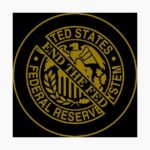If money is language, then bitcoin is English. It has a potential to scale that no other currency has and is the native currency of the internet.
You might call it the cable that changed history.
In the mid-19th century, there were various attempts to lay cables across the Atlantic Ocean between Ireland and the U.S.
It took several failures, numerous bankruptcies and over 10 years before they got it right, but eventually they succeeded. On July 27, 1866, Queen Victoria broadcast a message to the U.S. President Johnson. Here’s what it said:
Osborne, July 27, 1866
To the President of the United States, Washington
The Queen congratulates the President on the successful completion of an undertaking which she hopes may serve as an additional bond of Union between the United States and England.
Johnson replied:
Executive Mansion
Washington, July 30, 1866
To Her Majesty the Queen of the United Kingdom of Great Britain and Ireland
The President of the United States acknowledges with profound gratification the receipt of Her Majesty’s despatch and cordially reciprocates the hope that the cable which now unites the Eastern and Western hemispheres may serve to strengthen and perpetuate peace and amity between the governments of England and the Republic of the United States.
(Signed) Andrew Johnson
Money Is A Form Of Communication Technology
At that time, sending a message by ship could take ten days or more. But with the transatlantic cable it was now a matter of minutes, so someone came up with the slogan, “Two weeks to two minutes.” Transmission speeds improved rapidly. Morse code became words. It was soon possible to send multiple messages at once. By the end of the 19th century, Britain, France, Germany and the U.S. were all linked by cable.
Personal, commercial and political relations were altered for all time.
Back then, gold was money, as were paper notes representing gold. You couldn’t send gold down the cable, however, nor paper.
But you could send a promise. Within a fortnight of Queen Victoria’s message, that’s what two parties who trusted each other did. An exchange rate between the dollar and the pound was agreed to and then published in The Times on August 10, 1866.
That is why, to this day, the pound-dollar exchange rate, GBPUSD, is known as “cable.”
Promises, Promises, Promises
According to myth, Adam Smith said, “All money is a matter of belief.” He had a point. Look at a £20 note (if you still use them) and you will see the words “I promise to pay the bearer.” Money is promissory.
Of course, promises disappear. But gold doesn’t. The two are quite different forms of money: one is belief, the other is real.
Nevertheless, since the dawn of civilization, we have been using promissory money. Ancient Mesopotamians used mud tokens — a cone or a sphere — representing sheep or barley, baked inside clay balls to log debts owed. Over time, they found it more efficient, rather than baking tokens in balls, to inscribe pictures of the tokens in the mud for the same purpose. That is how the first system of writing came about. In ancient China, people recorded their debts on bits of leather. After the invention of printing, they started using paper. Today, the promises are recorded and exchanged between trusted third parties on computers.
Millions, probably billions of promises are sent across the internet every second. Not only does (promissory) money evolve with communication technology, it is often the impetus for communication technology to evolve.
Now Bitcoin, with its blockchain, obviates the need for trusted third parties altogether. That is one of many reasons it is so special. Here is a money communication network backed instead by mathematical proof and by the most powerful and resilient computer network ever known to man; the trusted third party is the blockchain.
Why would you not want to own a share of such a breakthrough technology? Effectively, that is what owning some bitcoin is — owning shares in a new monetary technology. And it’s not like anyone is doing any rollbacks.
Money Has Evolved Like Language
My purpose with this is to illustrate a point: If you’re sending important promises, you need good communication tools. What is money, then, but a form of communication?
Let’s explore further.
It’s often said when considering politicians, look at what they do, not at what they say. What we do says more about us than what we say. What we do with our money says even more.
And what we do with our money communicates value, not just between buyer and seller, but across the economy. What is the price of something? What is its value? The answer is constantly being sent and received, digested and acted upon. The economy constantly, incrementally evolves and develops with each new signal: the how, why and when of what needs producing and where.
Money then is like a language: constantly evolving and changing. Nobody is really in charge, not even central bankers. Our fiat system wasn’t really planned. It has just constantly evolved, with billions of people contributing in their own different ways simply by using it. The architects of fiat money did not plan what we have today, they just used it to get out of a tight fiscal spot, extenuating circumstances at the time.
Similarly, nobody planned the language we speak today. Language is hard to plan and regulate, try as many have over the years — and still do. It just constantly evolves and develops, according to the use and needs of billions.
The English we speak today is a long way from the English of Chaucer, Shakespeare or Dickens. There are probably fewer words, certainly fewer tenses. Grammar is simpler. Yet it is far more widely spoken. The network has grown.
Mandarin may have three or four times more native speakers, but English is more widely spoken. There may well come a time when everybody in the world speaks English. It is the dominant linguistic network.
Meanwhile, other languages fade away. Cornish has gone. Few now speak Welsh or Gaelic. The local dialects of France and Italy are disappearing. Similarly, there are no doubt a plethora of African, Asian and Native American languages that are on the way out, if they haven’t already gone.
The question to ask is this: How scalable is the language? English has the potential to become the default language of the world; it’s almost inevitable at this point. Despite having more native speakers, that’s unlikely to be the case with Mandarin. It’s certainly not going to happen to Gaelic, Neapolitan or Swahili.
How many different monies have there been in history? Shells, whale teeth, metals, paper, cigarettes, mackerel packs, cognac, Zimbabwe dollars, reichsmarks, denarii, farthings, shillings, shitcoins. Most have died. Most of those that haven’t yet died, will die. Only gold goes on, immutable and permanent. But, as with transatlantic cables, you can’t send gold over the internet, only golden promises between trusted parties.
Bitcoin Is Money For The Internet
The U.S. dollar is the global reserve currency. You can send that over the internet, but it’s hard for people who aren’t American to get U.S. dollar-denominated bank accounts. Foreign exchange fees are expensive. Money transfers can take several days sometimes. Billions of people remain unbanked and thus excluded from the financial system altogether.
The dollar is a national currency that is used internationally. A country could use it as their national currency (and several do), but they would be importing U.S. monetary policy too, and so subjecting themselves to U.S. political whims. This is why most countries with their own political agendas issue their own currencies.
Thus, though “international,” as a national currency, the U.S. dollar is limited by its national borders and its politics. The same goes for any national currency.
Language is not limited by national borders — or at least English isn’t.
If only there was an apolitical, borderless currency for the borderless medium that is the internet, then that really would be scalable in a way that no national currency is. A network that has evolved organically and is constantly growing.
You don’t need a bank account to start using bitcoin. You only need a phone with an internet connection. We are not far off that point when everyone who wants a phone has one. That means even the unbanked can use bitcoin.
My argument is this: if money is language, then Bitcoin is English. It has a potential to scale that no other currency has. And even with the drops in price we have seen, the network hash rate has doubled since a year ago. Now that’s growth.
Just as a final quick aside, here’s a nice little anecdote from not so long ago when the pound had greater global recognition than the dollar.
In emulation of Jules Verne’s Phileas Fogg who went “Around The World in 80 Days,” American journalist Nellie Bly went on a trip around the world in 72 days in 1889 to 1890.
She took British pounds, but she also brought some dollars as a test to see if American money was known outside of the U.S. She went east from New York and did not see American money until Colombo, Sri Lanka, where $20 gold pieces were used as jewlery. They accepted her dollars — but only at a 60% discount.
It’s a bit of an ask, though possible, to get people to accept bitcoin in the physical world, but that is not what it is for. It is money for the internet and, as such, boy is it scalable.
This article first appeared at MoneyWeek.
This is a guest post by Dominic Frisby. Opinions expressed are entirely their own and do not necessarily reflect those of BTC Inc. or Bitcoin Magazine.





 BTC-USD
BTC-USD  ETH-USD
ETH-USD  LTC-USD
LTC-USD  XRP-USD
XRP-USD